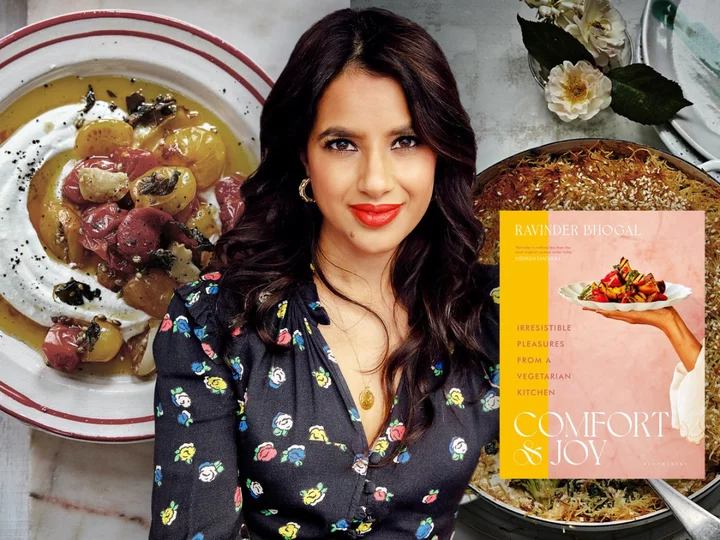
Chef Ravinder Bhogal: Vegetables are the secret to saving money
With food prices hiking, many of us are looking to cut the price of our weekly shops – while still eating delicious food. And the answer, Ravinder Bhogal believes, lies in vegetables. “Vegetables are the ultimate economical thing to cook,” says the chef and restaurateur, who was discovered by Gordon Ramsay after she applied for his competition to find “Britain’s new Fanny Cradock” on The F Word. “Meat has become so expensive. If you lavish the same kind of care and attention on [vegetables] as you do a steak or joint of meat, they are going to sing with flavour.” She continues: “Why can’t you take the time to marinate vegetables, inject them with flavour, baste them, add texture to them or play with their textures?” Bhogal, who was born in Kenya to Indian parents and moved to England at the age of seven, says root vegetables are our real saviour when it comes to budget cooking in Britain. “Anything that’s grown in this country, swedes, celeriac… And if you buy in season it’s naturally going to be a bit cheaper.” The 44-year-old, who owns London restaurant Jikoni (the Swahili word for “kitchen”) is vegetarian “80 per cent of the time – then I might have a Sunday roast or something” has released her third cookbook, Comfort & Joy: Irresistible Pleasures From A Vegetarian Kitchen. “There are so many things that you can do with vegetables where you’re just not going to miss the meat. What isn’t there to love about the lightness and brightness of vegetables?” And there’s a real misconception that vegetables can’t be comforting, she says: “For me comfort is about food that nourishes you, that makes you feel well, that makes you feel alive, that makes you feel revived.” It was Bhogal’s early years in a multigenerational household in Nairobi (“My grandparents, my uncle and aunt, their children, my mother’s brood of five, whoever happened to be visiting, there was a parrot, a dog, kittens, chickens, goats – it was a really chaotic household!”) that would pave the way for how she approached food later as a chef. Her grandfather dutifully tended to his shamba – or allotment – and had a deep respect and connection to the verdant soil where many vegetables grew. “When he came from India to Kenya, he completely fell in love with this beautiful red, volcanic soil that just seemed to give and give and give,” says Bhogal. “And he never stop being grateful for that. He’d come from a place where there was so little, and then suddenly, there was this soil that just blessed him and his family with all these beautiful things to eat.” Everything the household ate was either grown by him or came from the “mama mbogas” – local women with smallholdings who peddled their “the freshest hand grown vegetables” from door to door, she says. The chef in the house was her mother though, who was an “exceptionally talented” cook. “There were so many mouths to feed, so you can imagine the level of organisation that it took. She was the commander in chief and we were all her assistants, whether you liked it or not.” As a result, Bhogal learned to cook from her mother’s direction, although she wasn’t always happy about it. “Initially, I really resented it because growing up in quite a patriarchal household, the boys would be outside playing, and the girls would be in the kitchen. And that really sucked to me. “Anything I tried to attempt to cook, [my grandfather] would always tell me how delicious it was and praise me, and I think I made that connection between food and love and winning people over with food.” And the influence of her time in Kenya can be seen in the latest book; think pili pili cassava (one of the go-to carbs in many African nations) or Kenyan maru potato bhajias with tamarind and tomato chutney (potato coated in spiced chickpea flour and fried). Swapping Kenya for England as a child left a mark on Bhogal. “Kenya is like a state of mind, it’s such a bewitching country, it never really leaves you, it clings to you,” she says. “When you grow up with such colour and such a colossal sky… I was outdoors a lot, playing with all the animals [with] this really beautiful, very lush sunny backdrop. When you are plucked from that age seven and turn up in a very grey dark England, you try and hold onto that and keep connected to that.” South East London was “very different and sort of haggard in comparison to Kenya”, she says. “Everything was very small suddenly. I grew up in a flat above a shop and going from huge trees and sky that was ever blue to turning up to this very dark, dank [place]… The adjustment was very, very difficult.” But it’s all culminated in her cookery style now. “I consider myself a hybrid, I’m Indian, there’s Persian ancestry too, I’m British, I grew up in London, I’m also the product of all kinds of the diverse immigrant communities that helped bring me up.” So you’ll find Persian-inspired fermented rice, lentil, beetroot and coconut handvo (a savoury cake) in her new book, alongside Mumbai street food like peanut and golden raisin poha, and English grilled peaches with silken tofu and Thai basil and lime leaf gremolata. The recipe for pea kofta scotch eggs with saffron yoghurt is vibrant amalgamation; honouring memories of her father bringing home a sack of locally grown peas from Nairobi’s bustling city market and shelling them in the kitchen with her mother – it is a hybrid of her mother’s Indian recipe and her British identity. Plus, some that have been tried and tested by her discerning restaurant diners, like mango and golden coin [curry with dumplings] – where the mangos are served whole, stone and all. “I remember telling my husband I was going to put this mango curry on the menu and he was like, ‘You’re insane, how are people going to eat a whole mango?’ And it’s gone on to be one of the most popular things. “I think the whole joy of a mango is the generosity of serving it whole, there’s something about a whole mango that’s so rapturous,” Boghal says. “When it comes to the table people often go, ‘Is it chicken breasts?’ Nothing gives me more joy than to see people using pooris to scrape off the flesh from the mango and pick up the stone and gnaw on it. “I think if you don’t have a problem picking up a lamb bone and gnawing it, why not a mango stone?” ‘Comfort & Joy: Irresistible Pleasures From A Vegetarian Kitchen’ by Ravinder Bhogal (Bloomsbury, £26). Read More Showstopping BBQ main dishes for a hot grill summer 7 TikTok food hacks that actually work Saltie Girl in Mayfair will make you happy as a clam – as long as you can afford it These recipes will keep you hydrated on hot days Three tomato salad recipes that aren’t boring Try one of these pasta recipes this British Tomato Fortnight
2023-06-08 13:49
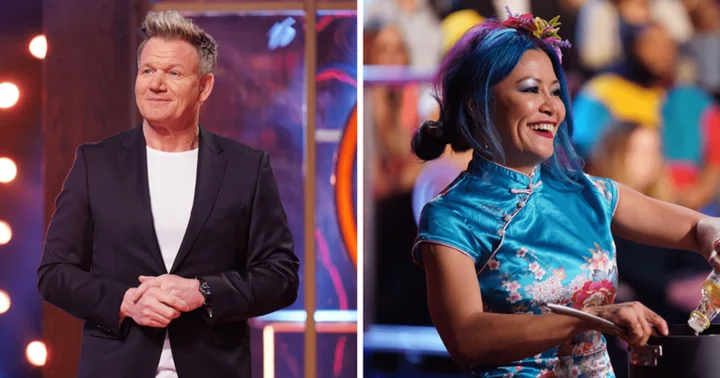
'MasterChef' USA Season 13: Gordon Ramsay slammed over sneaky shenanigans with Madame Donut
Fans call out Gordon Ramsay as he teases Madame Donut with a 'fake no' before handing her the apron on 'MasterChef' USA Season 13
2023-06-08 11:48

AI chatbots offer comfort to the bereaved
Staying in touch with a loved one after their death is the promise of several start-ups using the powers artificial intelligence, though...
2023-06-08 09:47

Spotify Shifts Podcast Strategy to Make Exclusives Available on Other Platforms
Spotify Technology SA is in talks to make the popular podcasts Armchair Expert and Anything Goes available on
2023-06-08 03:46
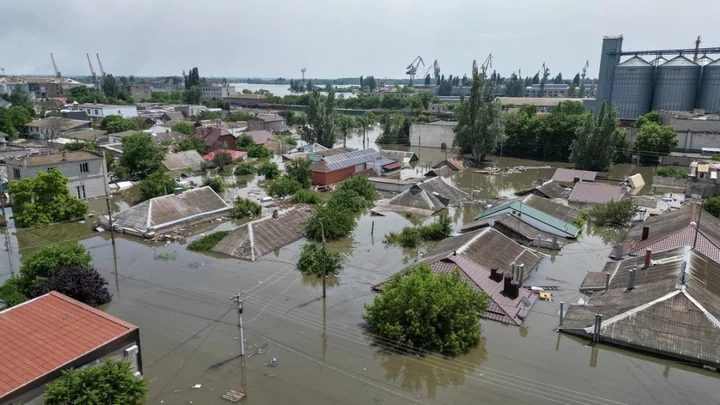
Ukraine’s fields could become deserts and spark global food crisis in wake of dam destruction, officials warn
The destruction of the Nova Khakhovka dam will likely turn Ukraine’s southern fields “into deserts” within the year – sparking a global food security crisis, top Ukrainian officials have warned. Ukraine’s emerency services are carrying out rescue operations across dozens towns and villages in the wake of the dam – which is under Russian occupation – unleashing the waters of one of Europe’s largest reservoirs across the war-torn south. The deluge has destroyed homes, drowned animals, severed clean water supplies and forced thousands of people to evacuate. The sudden emptying of the reservoir has crippled key irrigation systems in three surrounding regions. That has stopped the water supply to nearly 600,000 hectares of agricultural land, and endangered the production of 4 million tonnes of grain and oil crops, Ukraine's agricultural ministry wrote in a statement. “The fields in the south of Ukraine may turn into deserts as early as next year,” the ministry said, adding that the surrounding countryside and water supplies have also been destroyed and fish stock killed. “In total, according to preliminary calculations, the losses from the death of all biological resources will amount to [$285 million dollars],” it concluded. Mykhailo Podolyak, a chief advisor to President Zelenksy, warned this “global ecological disaster” could impact worldwide food supplies, as Ukraine, nicknamed the bread basket of the world, is a major producer of grains and oils. “The instantaneous death of a large number of fish and animals, the waterlogging of drained lands and the change in the climatic regime of the region will later be reflected in the food security of the world,” he told The Independent. Ukraine holds the western bank of the Dnipro River near the dam - where some 16,000 people were affected by the flood. Russia controls the eastern side, which is lower and more vulnerable to flooding and where some 22,000 people are impacted. About 3,000 people have already been evacuated from flooded areas on both sides of the river, officials said. The Ukrainian military has blamed Moscow for the attack, saying Russia wants to prevent an advance by Ukrainian forces. The Kremlin denies the accusations saying Kyiv is seeking to distract from a “failing” counteroffensive, that is ongoing. The Kakhovka hydroelectric dam and reservoir are essential for drinking water and irrigation for a huge area of southern Ukraine and the Crimean Peninsula, which has been occupied by Russia since 2014. It lies in a part of the Kherson region that has been controlled by Moscow's forces for the past year since President Vladimir Putin launched his invasion. On Wednesday the authorities and charities rushed to get drinking water and food supplies to the flooded areas and to help save those who are stranded. In the city, people used boats and rafts to try to find missing inhabitants, while others waded through knee-deep water clutching their belongings. “There were people standing on the street just in their underwear because the water had come in too fast and submerged their homes and belongings,” said Yuliya Konovalova, an aid worker who works for Ukrainian animal charity Hachiko. She had spent the day bringing hot meals and water to the inhabitants of Kherson, and rescuing and feeding stranded pets. "The water was rising so fast we hope those people manage to escape,” she added. She said in the centre of the city trains were leaving every two hours despite the flooding and the shelling to ferry people to the nearby city of Mykolaiv “It is a disaster, it is a catastrophe, it is difficult to understand how it is possible.” “It was a really painful day, on the way back I was crying,” she added breaking down in tears. Ukrainian President Volodymyr Zelensky said that Russian soldiers were shooting from a distance while rescue attempts were in progress. "As soon as our helpers try to save them, they are shot at," he told German newspapers Bild and Die Welt and also Politico. The country’s deputy prime minister, Oleksandr Kubrakov, also warned of drifting landmines unearthed by the flooding. "Water is disturbing mines that were laid earlier, causing them to explode," Mr Kubrakov said. “As a result of the flooding, infectious diseases and chemicals were getting into the water,” he added. Mr Zelensky said later said on Telegram he had spoken to French President Emmanuel Macron about the environmental and humanitarian situation in the Kherson region. "I laid out Ukraine's general needs in dealing with the disaster. And we discussed the possibility of involving international mechanisms to investigate its causes," the president said. Meanwhile, in his first public comments on the disaster, President Putin repeated Moscow's line that Ukraine is to blame for destroying the Kakhovka dam. In a call with Turkish President Recep Tayyip Erdogan, Mr Putin alleged that Kyiv authorities had escalated "war crimes, openly using terrorist methods and staging acts of sabotage on the Russian territory," the Kremlin said in its account of the call. Read More Ukraine-Russia war news – live: Exploding mines float through floodwater after Kherson dam attack ‘Hard to control emotions’ amid Kherson flooding, says Ukrainian aid worker A dam bursts, but this barbaric attack will not halt Kyiv’s ‘big push’ Ukraine’s long-term future to be on agenda at Sunak and Biden meeting The Body in the Woods | An Independent TV Original Documentary The harrowing discovery at centre of The Independent’s new documentary
2023-06-08 03:25
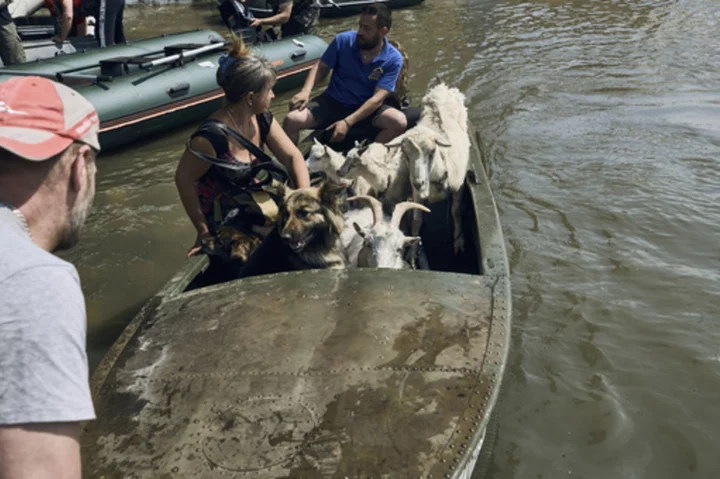
Ukrainian dam breach: What's happening and what's at stake
The fallout from the breach of a dam along a front line of Russia’s war in Ukraine is wreaking havoc on lives, livelihoods and the environment
2023-06-08 03:18

Megan Fox and 50 Cent join Sylvester Stallone in 'Expend4bles' trailer
Action legends Jason Statham, Dolph Lundgren, Randy Couture, and Sylvester Stallone reunite for Expend4bles, the
2023-06-08 00:48
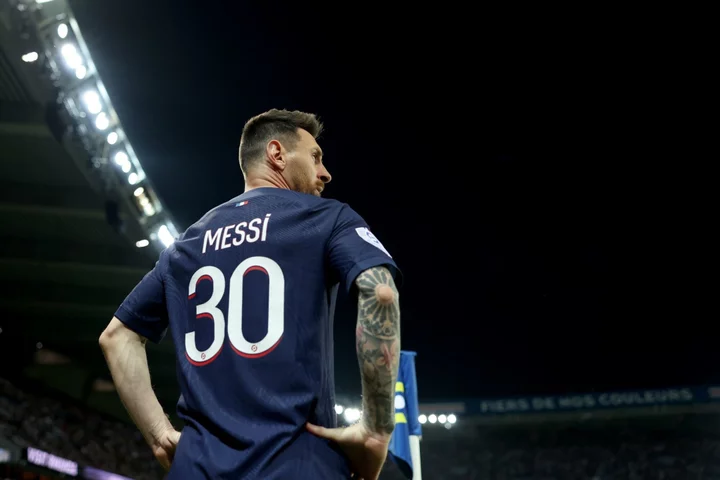
Messi Spurns Giant Saudi Offer for Beckham’s Miami, BBC Says
Lionel Messi will join Major League Soccer club Inter Miami, according to the BBC, turning down a deal
2023-06-07 23:47

'Good Omens' Season 2 trailer teases even more heavenly chaos
We haven't seen the last of our favourite demon/angel duo just yet. On Wednesday Prime
2023-06-07 22:27
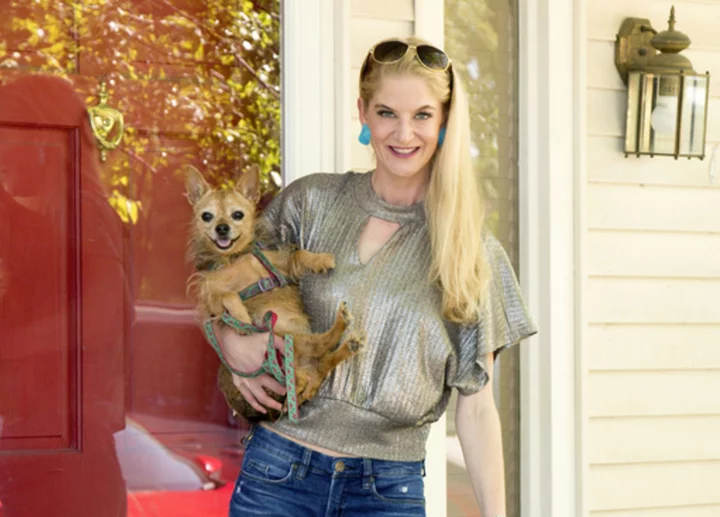
Platonic co-parenting offers an alternate model for family building
More families are coming together platonically
2023-06-07 22:24

20 best comedies streaming on Netflix right now
Nothing feels as good as a deep, genuine laugh. It's an expression of joy! It's
2023-06-07 17:49

MrBeast, KSI or Logan Paul: Which YouTube titan wins race for biggest business empire?
Popular YouTube influencers have adeptly utilized YouTube to launch their own businesses
2023-06-07 16:58
